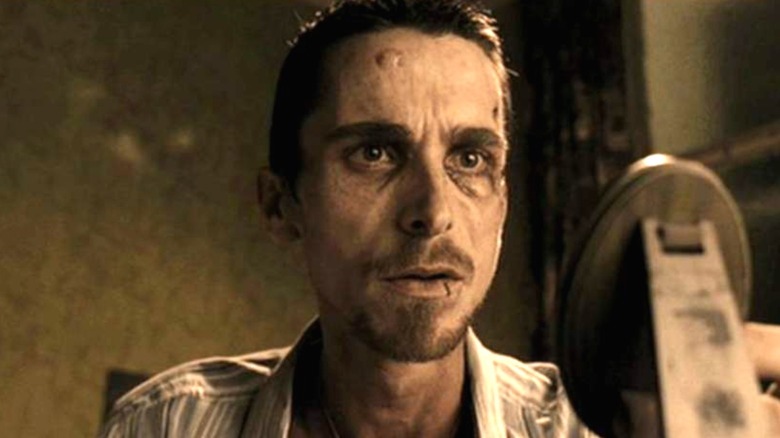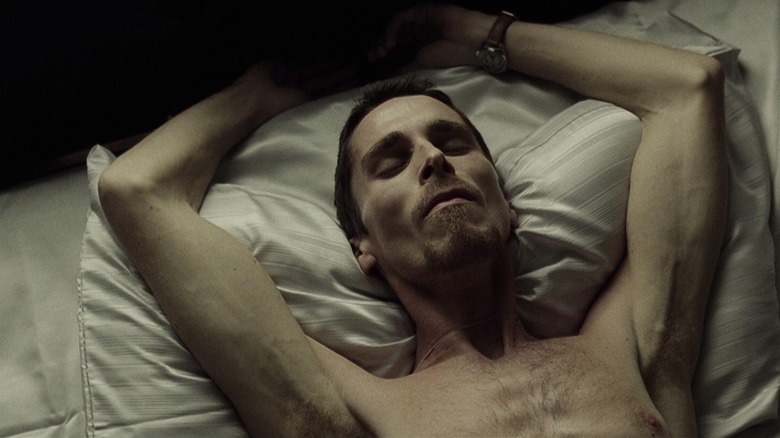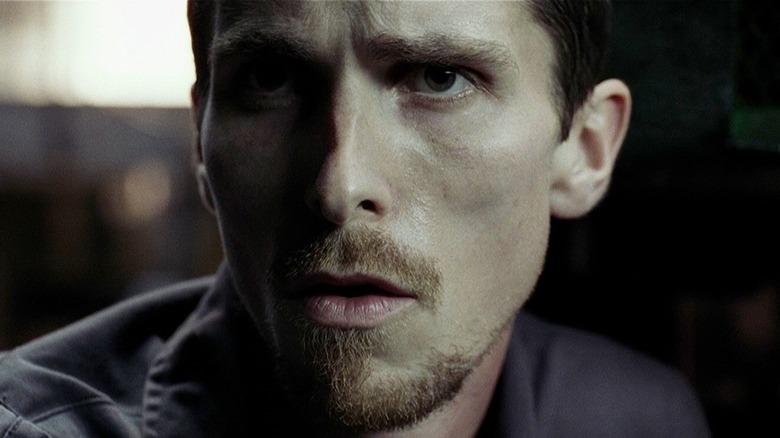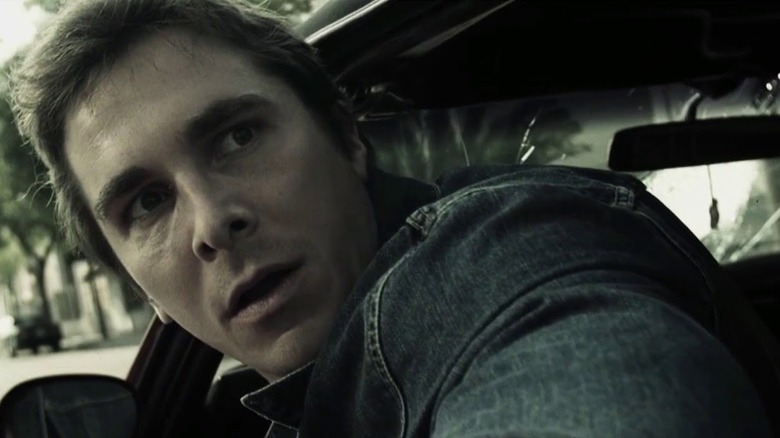The Ending Of The Machinist Explained
A powerful mixture of dark comedy, surrealist drama, and psychological thriller, Brad Anderson's "The Machinist" is the tale of one man's spiral into the depths of madness. The film stars Christian Bale as the eponymous machinist Trevor Reznik, a factory worker who suffers from chronic insomnia and claims he hasn't slept in a year. A tragedy at his job sends the man on a downward spiral into hallucinatory madness that forces him to confront his demons, whether he wants to or not.
While "The Machinist" is most famous for Bale losing 62 pounds in preparation for the role, the film is far more than a mere exercise in method acting. The ending of "The Machinist" has a lot to say about the crushing weight of guilt and the where our minds can go to ensure we avoid the harsh, unyielding truth in favor of a sustainable lie, no matter how horrific a place that lie might lead us.
A journey into the depths of despair
By the end of "The Machinist," Trevor makes an absolutely terrifying discovery: He's come to realize that many of the people he knows in his everyday life aren't real. They're hallucinations brought on by a combination of his insomnia and rapidly declining mental health. The waitress Maria, her young son Nicholas, his work rival Ivan — none of them exist. Trevor recovers memories he'd long since buried deep down that reveal he'd killed a boy who looked identical to Nicholas in a hit-and-run a year before the events of the story.
Rather than face the consequences of his actions, Trevor drove off, but the repressed guilt of what he did ate away at him mentally and caused his physical deterioration as well, leaving him a broken shell of a man and incapable of finding rest, with the horror of what he'd done buried deep in his subconscious. But the guilt and the pain can't be denied, causing him to create Maria (a representation of the mother of the boy he killed), Nicholas (the representation of the boy), and Ivan (as a projection of the man he used to be before the accident). As "The Machinist" reaches its climax, Trevor comes to terms with the reality of his situation and the truth behind the lies he's been telling himself.
The slow build to revelation
There are a number of hints doled out over the course of the film that hint to the film's revelation. The amusement park ride that Trevor takes Maria and Nicholas to is called "Route 666," and during the ride, Nicholas experiences a seizure that only Trevor and Maria have any reaction to, a subtle indicator that mother and son aren't real. The clocks in "The Machinist" all seem to be broken, stuck at 1:30 p.m. Trevor always notices something around that time and the film's major reveal (and the significance of that time) occurs at exactly one hour and thirty minutes into the movie, when we learn exactly what he's done.
When Trevor attempts to obtain information about Ivan's license plate, it's revealed that the plate number is Trevor's number reversed. Finally, after Ivan encourages Trevor to follow him he runs a red light but doesn't receive a single honk on the horn from any of the other cars in the intersection, proving that neither he nor his car are there. Confronting the truth behind these illusions is what places Trevor on his path in "The Machinist's" final scene.
The truth will set you free
In the film's final scene, Trevor has his truck ready at the curb. He informs his landlady he has made arrangements for his possessions to be taken for donation to Goodwill. He drives and comes up on a turnoff, one branch leading toward the airport and another leading toward downtown LA. For a moment, we think Trevor might be attempting to flee the country and save his own skin, but he goes to the police instead. Ivan smiles and waves at him as he goes inside, and Trevor walks up to the desk sergeant and says, "I'd like to report a hit and run."
Led to a prison cell by the police, Trevor lies down, the guilt of what he's done visibly lifting from his body as he slowly passes out. Throughout the film, the visions and haunting imagery have been pushing Trevor to confess, to free himself from the constant torment. The denial of what he'd done and his inability to face it nearly destroyed him, but by telling the truth of the horror he committed, Trevor frees himself of the trauma and allows himself the potential to heal. It's a powerful ending to a film about the burden of guilt and the power of truth to redeem us in our darkest moments.



